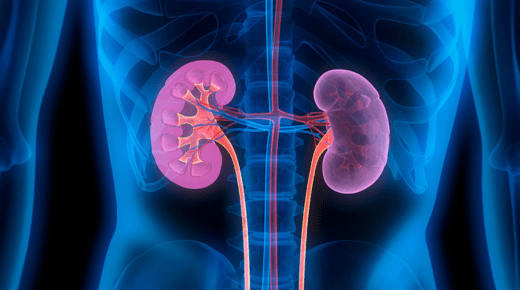1. Understanding Fatigue in Kidney Disease
Fatigue is a common symptom for those with kidney disease. It can be debilitating, affecting daily activities and overall quality of life. Understanding the causes and mechanisms of fatigue in kidney disease is the first step in managing and combating it effectively.
2. The Impact of Kidney Disease on Energy Levels
Kidney disease impacts the body’s ability to filter waste, leading to an accumulation of toxins in the blood. This can result in a feeling of constant tiredness and low energy levels. Managing these symptoms is crucial for maintaining a better quality of life.
3. Importance of Proper Hydration
Staying properly hydrated is essential for kidney function. Dehydration can worsen fatigue and other symptoms of kidney disease. Drinking adequate amounts of water, as recommended by healthcare providers, helps maintain energy levels and overall health.
4. Balanced Diet and Nutrition
A balanced diet rich in essential nutrients can help combat fatigue. Consuming a variety of fruits, vegetables, lean proteins, and whole grains provides the necessary vitamins and minerals to support energy levels and kidney health.
5. Regular Physical Activity
Engaging in regular physical activity can help boost energy levels. Light to moderate exercise, such as walking or yoga, can improve cardiovascular health and reduce fatigue. Always consult with a healthcare provider before starting a new exercise regimen.
6. Managing Anemia
Anemia, a common condition in kidney disease, can significantly contribute to fatigue. Managing anemia through medications, dietary changes, and possibly iron supplements can help improve energy levels and reduce tiredness.
7. Adequate Rest and Sleep
Getting enough rest and sleep is crucial for combating fatigue. Establishing a regular sleep routine, creating a comfortable sleep environment, and addressing sleep disorders can help improve sleep quality and reduce fatigue.
8. Stress Management Techniques
Stress can exacerbate fatigue in kidney disease patients. Techniques such as meditation, deep breathing exercises, and mindfulness can help manage stress levels, improving overall well-being and energy.
9. Medication Management
Some medications for kidney disease can contribute to fatigue. It’s important to discuss any side effects with healthcare providers and adjust medications if necessary. Proper management can help minimize fatigue and other side effects.
10. Monitoring Blood Sugar Levels
For those with diabetes and kidney disease, managing blood sugar levels is crucial. High blood sugar can increase fatigue. Regular monitoring and maintaining a healthy diet can help keep blood sugar levels in check and reduce tiredness.
11. Reducing Toxin Exposure
Limiting exposure to environmental toxins can help reduce fatigue. Avoiding smoking, excessive alcohol, and other harmful substances can support kidney health and overall energy levels.
12. Staying Engaged and Active
Staying mentally and socially active can help combat fatigue. Engaging in hobbies, socializing with friends and family, and participating in community activities can provide a sense of purpose and boost energy levels.
13. Seeking Professional Support
Consulting with healthcare providers, nutritionists, and physical therapists can provide personalized strategies for managing fatigue. Professional support ensures that patients receive comprehensive care tailored to their individual needs.
14. Importance of Regular Check-Ups
Regular medical check-ups are essential for monitoring kidney function and managing symptoms. Keeping up with appointments and tests helps detect any changes early and adjust treatment plans accordingly.
15. Managing Fluid Retention
Fluid retention can worsen fatigue. Managing salt intake and following prescribed fluid restrictions can help control fluid retention and improve energy levels. Always follow the guidance of healthcare providers regarding fluid management.
16. Mindful Eating Practices
Practicing mindful eating can help improve digestion and energy levels. Paying attention to hunger cues, eating slowly, and choosing nutrient-dense foods can support overall health and reduce fatigue.
17. Understanding the Role of Electrolytes
Electrolyte imbalances are common in kidney disease and can contribute to fatigue. Monitoring and managing electrolyte levels through diet and medication can help maintain energy and prevent complications.
18. Support from Friends and Family
Support from friends and family can make a significant difference in managing fatigue. Emotional and practical support helps reduce stress and provides a network of care, making it easier to manage symptoms.
19. Utilizing Assistive Devices
Assistive devices, such as mobility aids, can help conserve energy and reduce fatigue during daily activities. These tools support independence and improve quality of life for those with kidney disease.
20. Exploring Complementary Therapies
Complementary therapies, such as acupuncture, massage, and aromatherapy, can help manage fatigue. These therapies can provide relaxation and improve overall well-being, complementing traditional treatments.
21. Setting Realistic Goals
Setting realistic goals and prioritizing tasks can help manage fatigue. Breaking tasks into smaller, manageable steps and allowing time for rest can make daily activities less overwhelming and more achievable.
22. Educating Yourself About Kidney Disease
Educating yourself about kidney disease and its impact on the body can empower you to make informed decisions about your health. Knowledge about the condition helps in understanding and managing fatigue effectively.
23. Importance of Positive Mindset
Maintaining a positive mindset can help combat fatigue. Focusing on what you can do, rather than limitations, and celebrating small achievements can boost morale and energy levels.
24. Customized Treatment Plans
Work with healthcare providers to develop a customized treatment plan that addresses all aspects of kidney disease and fatigue. A personalized approach ensures that all individual needs are met and managed effectively.
25. Conclusion: Taking Control of Fatigue
Combating fatigue from kidney disease requires a multifaceted approach. By adopting healthy lifestyle habits, seeking professional support, and staying proactive in managing symptoms, individuals can take control of their energy levels and improve their quality of life.



